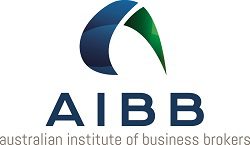How To Sell My Distribution Business
Sell My Distribution Business
If you are selling a distribution business there are some key points about your business that you should understand. You have possibly worked long hours for many years to build your distribution business. It has provided you with income, satisfaction and prestige. Now is the time to do the last deal on your business and sell it while making sure that that you get what you have worked so hard to get.
A distribution business is typically characterised by strong customer relationships, quality logistics and materials management systems, a modest amount of equipment, and sometimes a high level of inventory. This combination of assets creates a unique set of challenges when the time to sell arrives.
BCI Business Brokers suggests
Look at each of these points from a buyer’s point of view. That will ensure that your business is properly prepared for sale and attractive to a buyer. You should think of value in terms of risk ie the higher the risk, the lower the value:
- Product. How is your product differentiated? It needs to be popular and “in demand”.
- Pricing. Be consistent and choose the right price for your products. This will help you to maximise profits and build strong customer ties.
- Positioning. What channels do you distribute to? The more high-profile channels, the safer your business.
- Promotion and MarketingPromotion is about using the right channels and the right avenues to ensure you reach the right people who will use and reuse the product(s) you are distributing. Marketing is about working towards higher sales at the right margin. The more systemised this process is, the less nervous a buyer will be about the sales continuing to come in.
- Equipment. Is your equipment in good condition? if not, you will be penalised on the sale of your business. Whilst maintenance of equipment will see your business run smoother, a buyer will also notice this and this will add to value. If the equipment is not in good condition, a buyer will think that you can’t afford to do so and will discount your price accordingly.
- Growth Plan. Understand and have a documented plan for the future expansion of your business. A good growth plan makes sales projections more believable. What is your growth plan? More product lines? Boosted services? Increased geographic coverage? What part of your business is online and how could this be extended to reach more customers? How responsive is your website to mobile phone browsing? What about Social Media? What differentiates you in local and non-local markets? When a buyer comes and has a look at your business, the first question they will have is how they can grow it. It’s much better if you can show them the plan that you might be halfway through implementing already, rather than something that is in your head and might be implemented one day.
- Processes. Make the distribution process as seamless as possible. An Operation and Procedures manual ensures that the business runs efficiently and reaches its full potential. The manual should be reviewed and updated on a regular basis. Your staff should have a big part to play in the production and updating of the manual. That also gets staff “buy in”
- Orders and Marketing. Engage your customers everywhere and accept orders via phone, online and direct sales This also makes your business safer as you are not reliant on one channel. Apply this philosophy of differentiation in all areas of your business.
- Employees. Knowledgeable, well-trained and friendly staff can help to create satisfied customers and will lead to the unique selling experience that customers are usually seeking. Ensure that your customers want to deal with your business. Have training processes in place for all staff members to get the most out of your team.
- Supplier and vendor relationships should be maintained and enhanced with complete visibility across the procurement process. The important thing to remember here is that the relationship should be with the business and not the owner personally. Reduce the importance of the owner to the business and you will build a highly valuable business
- Diversification. Reduce risk by diversifying the customer and supplier base. What percent of your business is tied to one customer? What percentage is tied to the top ten customers? What percent of your business is covered by contractual arrangements? Are they long-term? How much of your business is recurring? Recurring business is much more valuable. How dependent are you on a few suppliers? Do any of the supplier contracts provide exclusivity that will protect you against competition?
- Stock Management. Manage your stock with complete transparency. The buyer is going to know what stock you have and when you hit your peaks and troughs. How about inventory turns? Is your stock outdated? Do you have a lot of dead inventory on the books? Excellent companies get excellent valuations and mediocre companies get mediocre valuations.
- Fulfil customer requirements on time, every time, to exceed your customers’ expectations while reducing costs. This adds to the brand power of your business and of course its value.
- Value Added. The successful sale of you business depends upon the specific market niche or niches you serve. Buyers want to understand your specific value-add. Why are your customers coming back to do business with you? What keeps them from taking up the offer of your competitors in favour of doing business with you?
- Financials. Make sure your books are in order and your financial statements are compiled and ready for investigation at the appropriate time. Your current tax figures might not show the true profit picture of your business and a competent business broker can always adjust these financials to show the true picture of the business.
- Competition. Understand how your competition is performing and how you measure up. Some of the value in the deal comes from the acquirer’s perception of how you rate in your peer group. How good are your profit margins?
- Transferability. Take steps to ensure that your distribution business transitions easily to the acquirer. Do you have a reliable sales team or do the customer relationships begin and end with you? What can you do to ensure the customers and suppliers will continue to stay with the business after the business sale? Are your contracts being written so that they can stay with the business regardless of ownership changes?
- SWOT analysis should be performed so that you know what your Strengths, Weaknesses, Opportunities and Threats are. The more information you can give your buyer, the better position you will be in to negotiate a price favourable to you.
- Business Valuation. Be aware of the fact that business valuations are not written in stone and there is a huge variability in what you can get for your business The more you would like to get for your business, the more planning and work you need to do to prepare your business for sale. Address potential negatives before putting the business up for sale.







